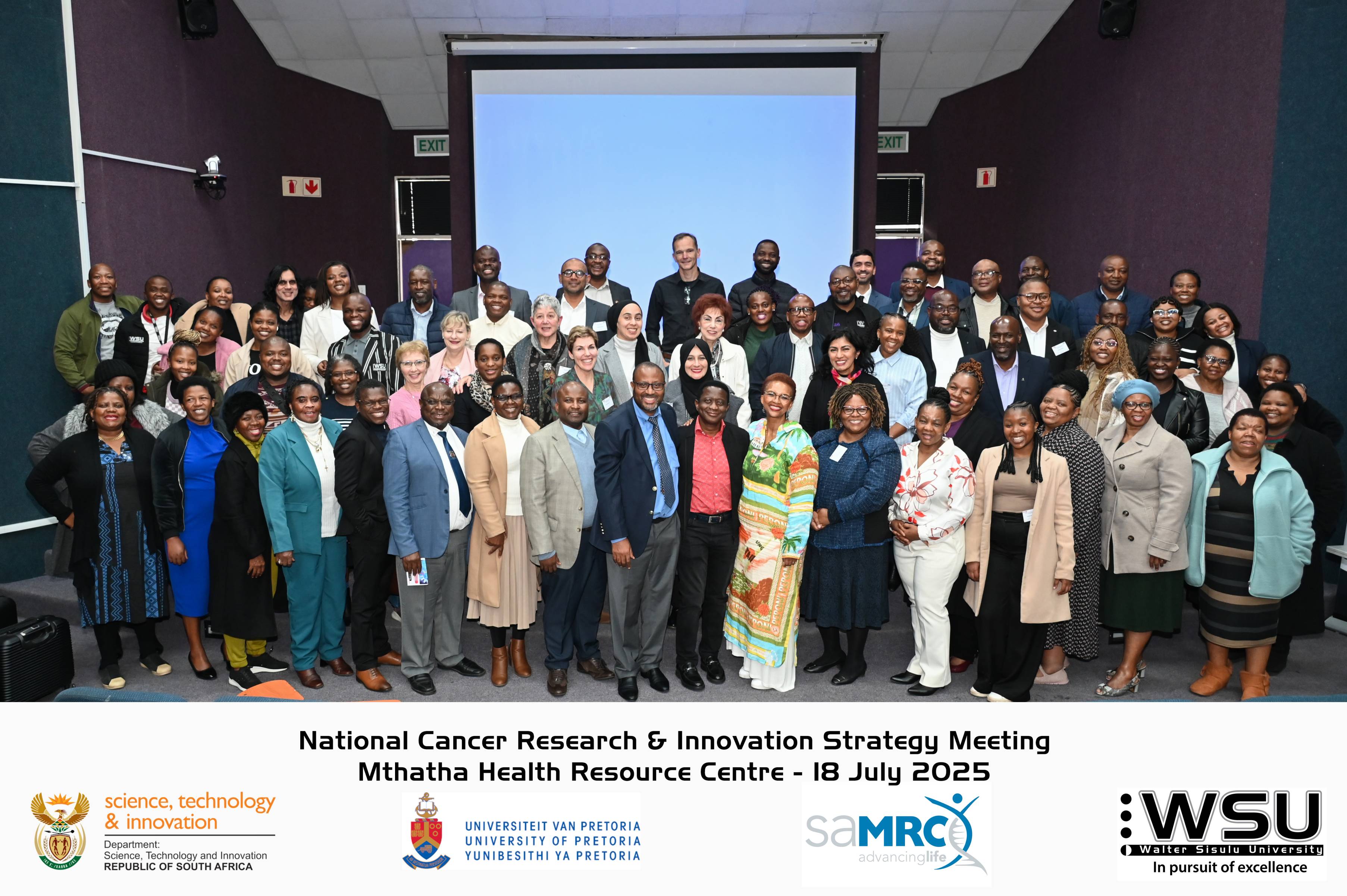CANCER EXPERTS GATHER TO DEVELOP NATIONAL CANCER RESEARCH STRATEGY

The rising national cancer burden that is projected to double by 2030, saw multiple stakeholders and experts from various sectors in cancer research, gather for the National Cancer Research and Innovation Strategy (NCRIS) workshop.
Hosted at Mthatha’s Health Resource Centre, this collaboration with national partners underscored the urgent need for coordinated, data-driven cancer prevention, diagnosis, treatment, and care, especially in underserved communities.
The role of the National Cancer Registry was recognised as central to research and policy, guiding efforts through improved surveillance and targeted interventions.
Acknowledging the significance of the cancer registry, faculty of Medicine and Health Sciences Executive Dean, Professor Wezile Chitha, said it was sad to see that over the years, the registry had not been sustainable.
“As WSU’s FMHS, we believe that this registry needs to be revived and should be housed within our faculty, within the Eastern Cape to ensure sustainability. With the SA Medical Research Council (SAMRC) as our partner, we would like to explore how this could be achieved. Sithi mazibuye emasisweni” (to reclaim or take ownership) said Chitha.
He added that the registry had contributed to the knowledge of geographical variations in adult and paediatric cancers in the province.
Chairing the proceedings was Head of Nuclear Medicine Research Infrastructure (NuMeRI) at the University of Pretoria and Steve Biko Academic Hospital, Professor Mike Sathekge, who is also the driver of the initiative.
“Our sole purpose is to assess regional cancer challenges, share research, and identify actionable strategies for improving cancer outcomes in South Africa’s second largest and predominantly rural province,” said Sathekge as he explained the workshop’s objectives.
The day’s proceedings featured critical presentations and panel discussions on prevention, early detection, treatment, palliation and survival. This is as per the World Health Organization’s (WHO) four cancer control pillars.
This outlined facts, figures, experience and findings, with the prioritisation on what questions to answer in cancer research and what should be funded, ensuring that it aligned with the National Department of Health’s vision strategy of “A long and healthy life for all South Africans’. Equally essential to the UN’s Sustainable Development Goal 3 of ensuring healthy lives and promoting well-being for all, at all ages.
The workshop report highlighted service delivery gaps in early detection, paediatric oncology, cervical and oesophageal cancers, as well as palliative care, with regional challenges including late diagnosis, poor infrastructure, and limited specialist access. In response, recommendations focused on scaling up HPV vaccination, enhancing public education, improving training and data systems, and decentralising care.
By Thandeka Mgqibi
